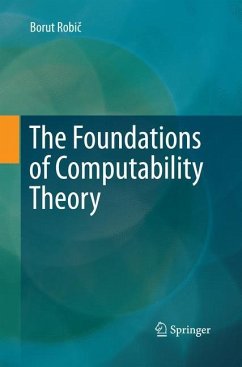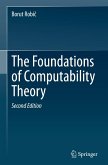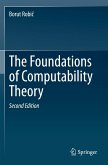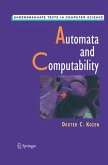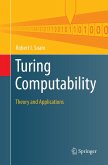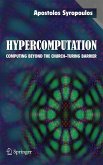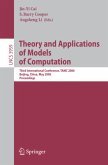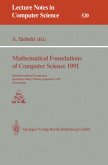This book offers an original and informative view of the development of fundamental concepts of computability theory. The treatment is put into historical context, emphasizing the motivation for ideas as well as their logical and formal development. In Part I the author introduces computability theory, with chapters on the foundational crisis of mathematics in the early twentieth century, and formalism; in Part II he explains classical computability theory, with chapters on the quest for formalization, the Turing Machine, and early successes such as defining incomputable problems, c.e. (computably enumerable) sets, and developing methods for proving incomputability; in Part III he explains relative computability, with chapters on computation with external help, degrees of unsolvability, the Turing hierarchy of unsolvability, the class of degrees of unsolvability, c.e. degrees and the priority method, and the arithmetical hierarchy.
This is a gentle introduction from the origins of computability theory up to current research, and it will be of value as a textbook and guide for advanced undergraduate and graduate students and researchers in the domains of computability theory and theoretical computer science.
This is a gentle introduction from the origins of computability theory up to current research, and it will be of value as a textbook and guide for advanced undergraduate and graduate students and researchers in the domains of computability theory and theoretical computer science.
"The book incorporates many historical, philosophical, and practical concerns closely related to the definitions and core results of the subject. In addition, the book covers enough ground to be able to discuss the finite injury priority method. ... The tone is friendly and accessible, and a reader can learn some of the fundamental aspects of computability theory and its history without getting bogged down in technical details." (Joseph R. Mileti, Mathematical Reviews, September, 2016)
"For the prepared, this is a wonderful blending of history and philosophy, foundations and computation, math and the mystery of the incomplete, undecidable, unknowable, incomputable. ... a willing reader will be happy." (Benjamin Wells, ACM Computing Reviews, April, 2016)
"The main purpose of this book is to provide the reader with a clear and deep understanding of the foundations of computability theory. This goal is fully achieved, because the book is well-written and its reading is very pleasant. ... It is a good textbook for undergraduate or beginning graduate students in computer science or mathematics, and I suggest to use it." (Patrizio Cintioli, zbMATH 1339.03001, 2016)
"For the prepared, this is a wonderful blending of history and philosophy, foundations and computation, math and the mystery of the incomplete, undecidable, unknowable, incomputable. ... a willing reader will be happy." (Benjamin Wells, ACM Computing Reviews, April, 2016)
"The main purpose of this book is to provide the reader with a clear and deep understanding of the foundations of computability theory. This goal is fully achieved, because the book is well-written and its reading is very pleasant. ... It is a good textbook for undergraduate or beginning graduate students in computer science or mathematics, and I suggest to use it." (Patrizio Cintioli, zbMATH 1339.03001, 2016)

